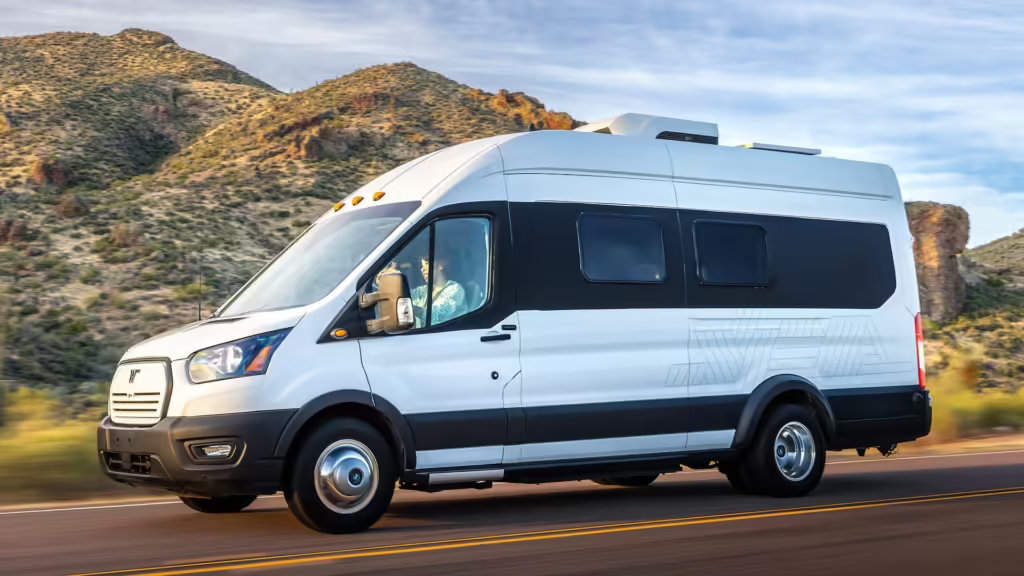Starting a road trip with your camper van is among the best experiences in life. The open road, scenic views and ability to explore freely create memories that stick forever. However, in order to keep these trips fun-filled and hitch-free, you need to regularly maintain your reliable vehicle. Just like any other home away from home, your camper van needs attention and care too.
Think about it: nobody wants their dream vacation cut short due to mechanical or safety issues. By being proactive about maintenance tasks, everything will always go on as planned. Whether you are a seasoned traveller or new to the camper lifestyle, having a dependable checklist will help keep things organized and ensure preparedness for whatever lies ahead.
So let’s dive into what really matters — creating lasting memories!
The Significance of Regular Maintenance
Regular maintenance is essential for longevity and performance of your camper van. Failure to do routine checks can cause bigger problems later on just like with any other vehicle.
A well-kept camper van guarantees safety during every trip. This lowers chances of breakdowns or accidents when cruising unfamiliar highways.
Furthermore, frequent servicing improves fuel efficiency. You save more money at the pump when all systems are running smoothly which is quite important for long distance travels.
Another advantage is that it maintains resale value. Having good records on regular checks attracts potential buyers when upgrading or selling off your dearly beloved house on wheels.
Adventures become much more enjoyable if one has peace of mind through them and routine inspections provide just this – knowing that everything has been taken care of lets you fully enjoy your journey without worrying at the back of your head. Exterior Checklist (Tires, Lights, Bodywork)
When it comes to shielding against weather changes; nothing does better than the exterior part of your camper van. So start by looking at tires; check inflation levels as well as wear and tear signs frequently. Under-inflated or bald tyres can easily cause skids while on road.
Next inspect lights; ensure that headlights, tail lights and turn signals are all functional. A blown bulb may seem like a small issue but it compromises safety especially when driving at night.
Don’t ignore bodywork; search for dents or scratches which might lead to rusting with time. Dealing with such flaws early enough keeps the van looking nice and preserves its structure too.
Regularly washing and waxing your camper does more than just making it look good; it also shields against UV rays as well as dust build up. Remembering these little things ensures that your trips remain enjoyable without any unexpected hitches along the way. Interior Checklist (Electrical Systems, Plumbing, Appliances)
The interior part of your camper van deserves equal attention too. Start off by focusing on electrical systems; inspect all wirings for signs of wearing out while ensuring tight connections. Test outlets and switches to confirm if they function as expected.
Next up is plumbing where you should check for leaks under sinks and around water lines. Examine hoses for cracks or discoloration indicating old age while flushing tanks regularly to avoid clogging.
Appliances should not be left out either; verify if fridge cools properly and whether gas powered ones work okay too. Air conditioning units can have their performance greatly affected by dirty filters so clean them regularly if applicable.
Doing regular checks on these parts not only enhances safety but also improves comfort during trips making every journey pleasant without any surprise along the way.
Safety Guide (Fire Extinguisher, Carbon Monoxide Detector)
Protection is crucial for your camper van. The thing that can help you the most in an emergency is a fire extinguisher. Keep it where you can easily reach and always inspect its pressure gauge.
Another equally important appliance to have is a carbon monoxide detector. It is necessary to protect yourself from poisoning because this silent killer can come from gas appliances or exhaust fumes. Test the batteries of the detector frequently and sleep with one eye open by installing them near sleeping areas.
Ensure both devices are current and compliant with regulations. It may also be good to have an escape plan in place so people know what steps they should take if things go south while camping somewhere down the line. A little bit of prevention goes along way – make sure you do your safety checks before every trip!
Seasonal Maintenance (Winter Prep / Summer Readiness)
Different seasons call for different measures when it comes to taking care of your camper van. You need to prepare for winter by checking antifreeze levels which will prevent engine freeze-ups among other things like ensuring that the battery is fully charged because cold weather tends to drain them faster than any other time.
Don’t forget about checking tire treads as well as pressures since lower temperatures tend to deflate them more often which affects fuel efficiency especially on slippery roads caused by ice.
As summer approaches, concentrate much on cooling systems such as keeping air conditioning units clean so that they work effectively during those sweltering days spent travelling around places where there are no shade trees nearby whatsoever.
Also be keen on cleaning out fridges and replacing items with those that can withstand heat waves without going bad quickly while at the same time ensuring window seals remain intact thus preventing leaks when rainstorms occur or humidity levels rise significantly above normal values leading into mould growth all over inside surfaces including carpets which may then necessitate thorough airing out afterwards thereby consuming valuable time needed elsewhere.
Inspecting these areas on a regular basis not only improves performance but also extends the life span of your camper van through all seasons.
Emergency Preparedness Tips
When getting ready to embark on a journey with your camper van always remember that preparedness is key. A good idea would be to start by having an emergency kit which should include things like first aid supplies, additional water provisions, non-perishable snacks and flashlights among others.
Ensure you also have tools with you since there might arise situations where minor repairs need immediate attention while still far away from any garage or workshop. Have in mind wrenches, screwdrivers as well as duct tape since it can come in handy during tight spots encountered along the way.
GPS devices and maps are equally important because technology sometimes fails hence causing signal loss unexpectedly meaning one may find themselves lost without knowing where they are going. Always carry printed maps just for safe measure lest we wander aimlessly on roads less travelled.
Communication is another area that needs to be taken seriously while travelling using campervans thus it is always advisable to keep your phone charged up plus having an extra battery pack for backup power when required.
Before setting off let someone know about all travel plans made including routes chosen together with estimated arrival times so that if anything goes wrong people will have an idea of where exactly you could be found at particular moments. Being ready gives peace of mind even as we adventure into unknown territories along highways lined by tall trees whose branches whisper secrets only audible to those willing enough listen attentively before moving forward blindly into bends shrouded in mist created overnight by nature’s unseen hand.
Conclusion
Looking after your camper van ensures safe and fun road trips. Routine maintenance helps extend its lifespan while also enabling you maximize every single moment spent out there in the world of adventure.
Having a comprehensive checklist ensures everything is kept tip-top shape ranging from exterior components like tires and lights down through plumbing systems right up to electrical appliances found inside. Don’t forget about safety too by checking for fire extinguishers as well as carbon monoxide detectors.
Seasonal maintenance prepares you for different weather patterns such that if it needs winterization or summerizing then all necessary measures are taken accordingly. And let’s not forget about being ready during emergencies – knowing what to do when things don’t go as planned can save lives in an instant.
By remaining proactive about these maintenance responsibilities, you’ll be able to look forward to many future adventures in your reliable camper. Have a great trip!



